J Plates - Interview with J Plates
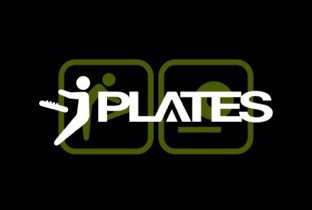 After reviewing his recent Brain Drain EP, Gareth from Muzic.net.nz reached out to Jeremy aka J Plates to have a chat about his musical tastes, production preferences, and the current state of the scene. With some remarkably insightful answers, settle in for this excellent read!
After reviewing his recent Brain Drain EP, Gareth from Muzic.net.nz reached out to Jeremy aka J Plates to have a chat about his musical tastes, production preferences, and the current state of the scene. With some remarkably insightful answers, settle in for this excellent read!
Take me back to your musical origins. When did you get into Drum n Bass and production? What were you listening to before that?
My introduction into Drum n Bass and Jungle music started kind of late compared to what you might expect growing up in the UK, surrounded by dance music culture through its inception. I played in a variety of bands throughout high school and during my first year of tertiary study, but quickly moved onto producing electronic music in my second year after attending my first bass music festivals and club events. The first Drum n Bass artist/DJ I ever attended in a club environment was Cern; that experience certainly reaffirmed my thoughts on what a well-balanced sound system could do and the power and bodily connection that low end can provide!
To backtrack slightly, I’d been deeply interested in electronic music and synthesis during the first stage of my music degree, and was listening to a lot of Brian Eno, Robert Fripp, and King Crimson, and regular house parties and afternoon gatherings would be toting Mr Bungle and Fantomas albums, all of which certainly left a sonic impression on me and informed what was possible in terms of arrangement, songwriting and overall aesthetic.
After I was exposed to what Drum n Bass music and sound system/dance music culture was all about, I took what I‘d already learnt and developed (in terms of music production) and tried my hand at creating that kind of music. It took a number of years to hone in on the production side of things (something I’m still and always will be working on), in order to form my own take and direction on the genre. There was a time I thought I’d always be playing in a band, but I’m happy I’ve taken the route that I have.
You’ve certainly named some very forward-thinking sonic experimenters there from outside the realm of DnB - I often find that the best producers draw upon a diverse range of influences (as the early pioneers of this sound did). DnB can often be pretty rigid in terms of its construction - as a musician with those sorts of progressive influences; do you find that you are able to express yourself as freely as you want in this genre? Would you consider electronic genres outside of DnB?
That’s a really good point. As producers we’re all in danger of falling into some form of feedback loop by clinging too hard within the sounds or genres we make. I’ve always tried to just do what’s natural to me at the time and do what I think sounds good by my own standards when it comes to creating the music I make. I’m not necessarily trying to create anything new or break new ground per se, so I think I’m able to just do what I want, change styles, try new sounds or nod back to older sounds and just let it be what it is. There will always be the latest trending sound within any genre, which changes every few years anyway, so I try not to let those types of shifts unground the foundation I’ve set for myself in that regard.
 In terms of other genres, absolutely! I actually have a large amount of unreleased non-DnB material, ranging from Downtempo, Ambient, to more classic sounding House and Techno that is finally going to see the light of day throughout the rest of the year, now that I’m branching out with my own releases. For example, the next self-release after the A Cut Above / Strength To Strength re-masters is a non-dnb remix of a track called Babel Blue by Italian composer Saro Tribastone, alongside another soon to be released EP I’m finalising details for at the moment which features a couple of Dub-Techno influenced collaboration tracks.
In terms of other genres, absolutely! I actually have a large amount of unreleased non-DnB material, ranging from Downtempo, Ambient, to more classic sounding House and Techno that is finally going to see the light of day throughout the rest of the year, now that I’m branching out with my own releases. For example, the next self-release after the A Cut Above / Strength To Strength re-masters is a non-dnb remix of a track called Babel Blue by Italian composer Saro Tribastone, alongside another soon to be released EP I’m finalising details for at the moment which features a couple of Dub-Techno influenced collaboration tracks.
I’ll also take this opportunity to announce that I’ve started developing a secondary alias/side project called Fear Not Want (or ‘FnW’ for short) which sees its debut 7 track Ambient album release titled The Waiting due out on the 12th June, to be followed up closely by a House-centric album titled Return To The Source. I plan to use this project as an outlet for future experimental ideas and sounds and will continue to develop my ‘Bootleg Series’ of unofficial remixes, which has been really fun to do. You can check out the new project here.
Despite the current situation, I’ve truthfully been building up to this point for a number of years now, so it feels really rewarding to find myself in a position to have an outlet for all the various bits and pieces of music I’ve created over the years; whether anyone buys the tracks or not is secondary to the fact that I can close the lid on those sessions, and fans old and new will get to hear more of my work!
Are there any producers or labels that inspired you starting out?
Most definitely, however those influences have always evolved and changed as time’s gone on. After my early festival and club experiences between 2007-2009, I started gravitating towards certain labels like early Good Looking Records and Metalheadz releases (which is perhaps not so surprising), but also invested in other equally notable labels such as V Records, Bingo Beats, Moving Shadow, Dread Recordings, 31 Recordings and Basement Records, all of which have instilled a sonic pallet for what I do with my own music. I’m also fortunate to have been exposed to musical interests and tastes other than my own over the years (often from peers older than myself), and I’ve always tried to investigate and look back along those chain of influences to draw my own conclusions.
The Good Looking Records and Metalheadz influence is definitely apparent in your music, which is no bad thing considering the pedigree and quality of both labels. Are there any current labels that you pay attention to?
 The last newer label that really grabbed my attention is a label called Myor based in the Netherlands, in particular their Diamond Life 12” series tracks, which have a very distinctive “classic” atmospheric Drum n Bass sound. These are some of the next records on my list to purchase once I’m in a slightly better position to do so and are definitely worth a look if you’re a fan of that style.
The last newer label that really grabbed my attention is a label called Myor based in the Netherlands, in particular their Diamond Life 12” series tracks, which have a very distinctive “classic” atmospheric Drum n Bass sound. These are some of the next records on my list to purchase once I’m in a slightly better position to do so and are definitely worth a look if you’re a fan of that style.
Do you follow the latest releases or just do your own thing?
For the most part I just stick to what I like, I mean I’m not oblivious to what’s coming out, but I think I have more of a passive approach in that I often stumble across new music by accident, whether it’s a brand new release or it came out a couple of years ago. I think it’s easy to get caught up with the latest “in” sounds, especially considering the sheer volume of material coming out on a daily basis; I’d go nuts if I tried to keep up with it all! Fundamentally, a track or release has to resonate on an emotional and musical level for me to want to invest in buying it or playing it out; it’s as simple as that, and I generally know in a matter of seconds.
To extend that thought, I think you can certainly hear when popular plugins and software are being used as new products are developed, and it’s a fair observation that it creates a certain sound or recurring types of sounds because of it (although there’s nothing wrong with pushing boundaries and using new technology obviously). There’s something to be said though for using your own pallet of sounds or having your own take on it, something I’ve consciously done for an extended number of years now, and I’ve grown to understand my tools fairly well. Making the popular sound or using the latest trending software never crosses my mind when creating my own works and I’m comfortable using the approach and equipment that works best for me.
At the end of the day I just try to make music that hopefully extends a piece of myself or what I’m feeling in the moment onto someone else, so they can experience it and perhaps relate to it in their own way; I think that’s what any musician or artist is trying to achieve anyway, how you get there is kind of irrelevant!
That’s a great point about the end goal is to make music that moves people - sometimes that gets a bit lost. For the gear-heads out there, any specifics on your studio equipment? What can’t you live without?
There’s certainly a contrasting difference between the more rapid fire/instant reaction style tunes and the more slow burning tracks that develop over time; I prefer to live in the latter but that’s not to say there isn’t value in the former either, it all depends on the context.
First and foremost, I learnt music production on Logic during my degree (my first dabbling with a digital DAW/sequencer was with Pro Tools on a Digi001 during High School) but I’ve been using Propellerheads Reason since version 4 (which came about because I needed a solution to perform live at the time, around 2006/7) but I’ve continued to use Reason specifically for music production and composing. There was a while there where I was re-wiring Reason into Logic, but once Reason stepped into full DAW mode I’ve committed 100% to using Reason for all my tracks, without the headache of running two programmes simultaneously. I’m all about workflow and to me Reason just does stuff differently compared to more traditional DAWs. An example of this is how you can flip the rack around and re-configure patch cables to create new and interesting sounds using cv gates, the quality of the tempo algorithm when adjusting the speed of a track or groove, and so on; it definitely suits my mentality coming from a live sound background!
Aside from the various software plugins I use for mixing (which includes specific plugs by Maag, API, Lindell, Dangerous Music) and the modelled SSL 9000k console and NN-XT Sampler Reason offers (which I love for workflow) I have a small number of select pieces of hardware instruments that I use to create sounds (aside from using the odd sample here and there), the foundation of which is the EMU Proteus 2000 Rack Synth which is my workhorse (and what I’d try and grab if my house was burning down alongside my hard-drives!); it has so many great sounds and the programming capabilities and filters bring sounds to life.
 I also invested in the Dave Smith Instruments Mofo x4 Analog Synth, which as soon as you start designing your own sounds just adds so much warmth and oomph to a track that the sounds already jump out of the mix. I also have the often overlooked Techno classic; the Yamaha DX21, which although sounds a bit mechanical at times (and is starting to show its age), has some amazing foundational sounds that just work when they are appropriate. I also have a Roland MC303 groove box, which contains all the classic drum machine sounds like the 808 and 909’s alongside some amazing raw synth sounds, but unfortunately it hasn’t worked since I moved back to the UK. It should be said I purchased all of this kit (apart from the Mofo, which was bought new) for around $200 NZD a piece back in 2012/13; you can really get some decent equipment for very little if you do some digging and aren’t swayed by wanting the most recent gear.
I also invested in the Dave Smith Instruments Mofo x4 Analog Synth, which as soon as you start designing your own sounds just adds so much warmth and oomph to a track that the sounds already jump out of the mix. I also have the often overlooked Techno classic; the Yamaha DX21, which although sounds a bit mechanical at times (and is starting to show its age), has some amazing foundational sounds that just work when they are appropriate. I also have a Roland MC303 groove box, which contains all the classic drum machine sounds like the 808 and 909’s alongside some amazing raw synth sounds, but unfortunately it hasn’t worked since I moved back to the UK. It should be said I purchased all of this kit (apart from the Mofo, which was bought new) for around $200 NZD a piece back in 2012/13; you can really get some decent equipment for very little if you do some digging and aren’t swayed by wanting the most recent gear.
The latest addition to my studio is a small format Midas console which I pass all my synths through on the way in, but I also use it to run audio out of my DAW in order to externally manipulate EQ and to get a bit of desk saturation and separation. Again given my background, my experience with music is based on tweaking and manipulating physical, tangible equipment (e.g. one of the first consoles I used in a live setting was the Midas Venice series consoles) and recording it in as audio with all the flaws and variation that goes along with it. Of course, I wouldn’t want to live without digital recording and recall, but having a few pieces of equipment you know really well can have a real benefit.
Do you play out or focus on production?
I’d definitely love to play out more! However, the past few years have been challenging for me financially and health wise, so my focus has remained with production first and foremost. I decided once I moved back to the UK at the start of 2017 that I’d focus 100% of my efforts on music, something I’d wanted to do for a number of years but was logistically impossible while working full time in the events industry. Despite some setbacks (and the current situation) I’m really eager to start putting more focus on potential gigs in the future, even if it’s more localised events in the interim; I’m certainly not fussed in travelling for work whenever things open up a bit more!
Local-only gigs definitely seem to be the only option for the foreseeable future, which I think is probably healthy for growing the scenes all over the world. Any DJ’s that you admire for their mixing skill? When you mix do you prefer to stick to your own material or draw in a range of artists?
Definitely at this stage. If you set aside the obvious negative aspects I think it’s potentially a healthy reset in an odd sort of way.
In terms of mixing I think it depends a lot on the style of music being played. For example, I prefer listening to smooth, long blends for Liquid/Atmospheric sub-genres, where brashy Techstep sounds can get away with more abrasive cuts and transitions. The crowd has a lot to do with it too in my opinion; what time of night it is and the sort of vibe the DJ wants to establish or create over their set. That interaction is so important and can hugely dictate a DJ’s set, what direction they go in, and how quickly they may build or transition from track to track or style. I try to keep that in mind for my own sets, whether I’m playing my own tracks or stuff from other artists.
At the end of the day there’s really no right or wrong way to mix as long as the selection is good and people are dancing (or otherwise involved in absorbing the music). That’s the fundamental goal of any dance music genre, and given the nature of performing live, a “bum note” or slightly out of time blend goes by the wayside without much notice to the regular punter anyway. I also think technology (in regards to beat syncing) has certainly created an expectation towards perfection, but it’s always secondary to the music to me and whether or not the DJ (and by proxy the audience) are having fun or not. Whether you’re using a Controller, Vinyl, DVS, or CDJ’s to achieve that end goal (and I’ve had experience using all of them) is irrelevant when it comes down to it; they’re all conduits for amplifying and manipulating music.
With that in mind it’s hard to single out a specific style or approach because it all has its place depending on the situation, but if I was to flip a coin I guess it would be LTJ Bukem on one side, and Ed Rush and Optical on the other, and if I had my way it would land standing upright for the best of both worlds; the “rough with the smooth” as they say!
Your production style is noticeably old school - no foghorns or oversaturated sounds here! Your music takes me back to the late 90's heyday of the genre. Is that on purpose or just what you prefer to listen to?

Thanks, it’s interesting to note recurring statements like this! I think it’s more of a subconscious thing, but certainly has a lot to do with what I listen to and what I’m influenced by for sure - how could it not be!
I do recall a number of years ago how I really wanted to hear more “traditional” atmospheric Drum n Bass sounds come back into the forefront, around the time leading up to my Visions EP release on Omni Music. There were definitely a number of artists and labels still doing those sounds that I’d picked up on, but there were certainly fewer raw break beats. Fast-forward to the present day and there’s a huge resurgence in those earlier Jungle/Drum n Bass sounds, so it’s gone full circle from what I’ve noticed. I think that partly has to do with the fact that that era focussed more on the arrangement rather than creating perfectly produced tracks, or dare I say it, there was more of a “musical” element being fused into the tracks. That’s certainly where I find myself fitting into it, through my own previous musical background, but maybe it’s just the difference in technology, or a difference in location vs. exposure or something like that? Either way you can’t deny the impact that era has had on the genre; it’s the foundation.
You're an expat Kiwi living in the UK - what led to you leaving the country?
I’d always wanted to return to the UK at some stage. I was previously living in Belfast, Northern Ireland for a brief stint around 2010, working in the events industry and promoting the odd gig on the side (one highlight was bringing Black Sun Empire over for a debut Belfast performance!) which seems like a lifetime ago now and I’ve certainly grown a lot since that time. I decided to return to NZ for family health reasons and continued to work in the industry for a further 5 years but felt I had achieved all I could in that line of work and decided it was time to move on to new and different challenges.
The UK has a vast musical history, not just with Drum n Bass but with various dance music genres, sound system culture, and all the punk/post-punk and new wave music that was coming out during the 70’s and 80’s too. It’s crazy to think I’m now living so close to the birthplace of such amazing artists, bands and groups that came out of Manchester and Leeds during those times; the output from those two cities alone is quite remarkable once you start looking into it!
It’s remarkable the UK is an epicentre for so much incredible music. It must be inspiring just to be in proximity to it. How have you found breaking into the UK scene?
At risk of turning this interview into a therapy session, it’s honestly been a slow process, and for a variety of reasons which mainly have to do with my own personal situation. It’s surprising I’ve actually stuck it out considering the multitude of roadblocks I’ve had to endure along the way and the amount of times I’ve almost given up on music completely. On a positive note, the support I’ve received over the past year has really helped build my confidence back up, and the connections I’ve made will I’m sure lead onto further opportunities, especially in light of future gigs once that’s a possibility again.
How have you been occupying yourself during lockdown?
Trying to remain sane and mentally/physically healthy as much as possible! Being able to regularly get outside and go for long walks through and around the woodlands, parks and canals that surround where I live has been a real lifesaver in that regard. Thankfully, it’s not illegal to be able to leave your own home, nor should it ever be! I’ve started working on some new material here and there but I must admit it’s hard to retain focus sometimes when you’re simultaneously wondering if you’ll ever be able to get a job or make an income again in the industry you’ve dedicated well over a decade of your life to; it’s actually quite unsettling.
Unsettling is certainly an apt description. Any thoughts on how COVID-19 will affect the scene going forward?
It’s already had a disastrous impact on not only the events side of the industry but also for other equally important industries such as the hospitality and tourism industries respectfully. A lot of people working these sectors and types of jobs often work week by week and have little to no savings, so the longer they’re unable to work and provide for their families, the more hardship they face and the more the economy suffers. We need these businesses to get back on track as early as possible, even if they open at reduced levels or limited numbers, but even that can be impractical for smaller businesses should limits remain in place. I’m no expert, but there seems to be a vast amount of very serious and concerning long-term implications now arising due the continued lockdown status around the world.
 One potentially positive silver lining which you’ve already alluded to is that there could be a shift in focus towards smaller venues/events for the number of businesses that are able to afford to be open during these transitional times, but it’s all a bit up in the air at the moment. I think the demand for culture will always be there, and hopefully a newfound appreciation for the arts and the music industry in particular will become more present. It’s sort of ironic in that music sales have plummeted over the past five or so years, to the point that live music performance has questionably become the only real way to make a living as a musician, and now that live music has been taken away from us all (for now at least) buying recorded music is back on the table as being the only feasible way artists can generate any sort of tangible income. We can talk about “streaming” income until we’re all blue in the face, but the reality in my mind is that the best way to support artists is to directly buy their music, digital or otherwise; streaming income (along with any other royalty payouts like radio plays etc.) is an added bonus in my opinion.
One potentially positive silver lining which you’ve already alluded to is that there could be a shift in focus towards smaller venues/events for the number of businesses that are able to afford to be open during these transitional times, but it’s all a bit up in the air at the moment. I think the demand for culture will always be there, and hopefully a newfound appreciation for the arts and the music industry in particular will become more present. It’s sort of ironic in that music sales have plummeted over the past five or so years, to the point that live music performance has questionably become the only real way to make a living as a musician, and now that live music has been taken away from us all (for now at least) buying recorded music is back on the table as being the only feasible way artists can generate any sort of tangible income. We can talk about “streaming” income until we’re all blue in the face, but the reality in my mind is that the best way to support artists is to directly buy their music, digital or otherwise; streaming income (along with any other royalty payouts like radio plays etc.) is an added bonus in my opinion.
I can only speak from my own experience of course, but the way I see it is that there’s a definitive value/cost to releasing music (or any art for that matter) and whether it’s paying for mastering, artwork, promotion, equipment, etc. all those people and businesses get paid an actual dollar amount to provide those services; how is that supposed to continue if the artists or labels releasing music (and whom are paying for those services) can’t even make a return on their own product - their music?
Any dream labels you'd like to release on?
I have a forthcoming vinyl release on Silent Force Recordings later in the year that I’m really excited about and releasing music on vinyl has certainly been a goal of mine for some time now. If I was forced to name just one label to release on though I’d have to say R&S Records, as I really love their varied output over the years, their overall aesthetic (visually and sonically) and the way they market and promote their artists and labels.
It’s always a matter of where my music fits in with whatever a particular label’s sound is at though. I mean, I could make music just to suit this label or that, but I don’t really enjoy working that way. I’d rather build up a body of work over a period of time and just see what happens. That’s how I’ve approached it in the past, and you never really know what tracks will get picked up anyways, so I just stick to what I enjoy and hopefully others do too.
Thanks so much to Jeremy for the detailed and informative responses. Check out his socials below and be sure to keep an eye out for upcoming releases, including a review of his new single coming soon to Muzic.net.nz
About J Plates

Join the 'Official J Plates Mail List' here.
Social Links & Highlights
Visit the muzic.net.nz Profile for J Plates
Releases
Other Interviews By Gwarden
 Interview with Decktrik
Interview with Decktrik
08 Dec 2020 // by Gwarden
Hailing from Palmerston North and with a varied career including radio hosting, music production, and a focus on community building within the NZ music scene, Decktrik AKA Samir Loumachi sat down with Gareth from Muzic.net.
Read More...
 Interview with Habit
Interview with Habit
28 Jan 2020 // by Gwarden
Wellington-based DJ, producer and promoter Stu Habit is a regular fixture in the NZ drum & bass scene. Gareth from Muzic.
Read More...
 Interview with Unsub
Interview with Unsub
11 Dec 2019 // by Gwarden
Lily Luck aka Unsub has been producing music for the better part of a decade with a slew of releases across multiple labels, including a whopping 3 albums this year alone. UK-born and NZ-bred, now based in Auckland, Lily was kind enough to answer some questions about her multiple talents, and what it’s like to live as three artists within one body...
Read More...
Most Viewed Artists
Latest Galleries
NZ Top 10 Singles
- APT.
ROSÉ And Bruno Mars - DIE WITH A SMILE
Lady Gaga And Bruno Mars - BIRDS OF A FEATHER
Billie Eilish - TASTE
Sabrina Carpenter - I LOVE YOU, I'M SORRY
Gracie Abrams - ESPRESSO
Sabrina Carpenter - SAILOR SONG
Gigi Perez - LOSE CONTROL
Teddy Swims - A BAR SONG (TIPSY)
Shaboozey - GOOD LUCK, BABE!
Chappell Roan














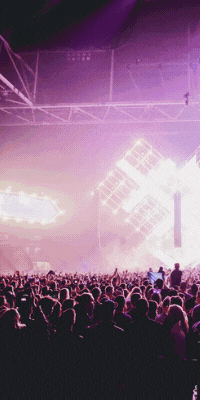
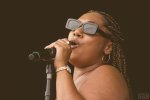

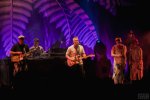
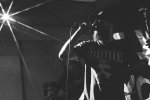


 Report A Problem
Report A Problem

